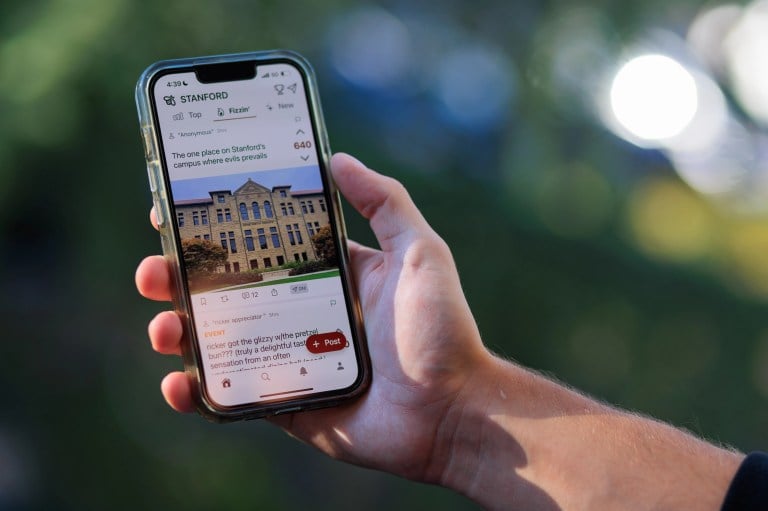Only a month after announcing they’d received $4.5 million in seed funding, anonymous social media app Fizz announced last Tuesday that it secured another $12 million in Series A, which the app’s founders said they plan to put toward expanding Fizz nationwide.
Series A is the first large infusion of venture capital that tech companies receive after an initial ‘seed’ round of funding, usually representing a greater degree of trust from investors that a company will succeed. Fizz’s Series A was led by global venture capital firm NEA, with contributions from other firms such as Lightspeed Venture Partners, Rocketship, Smash Ventures and New Horizon.
A recent TechCrunch article reporting the funding compared the company to Facebook, suggesting Fizz might be “embracing the ethos to move fast and (hopefully not) break things.”
Co-founders Teddy Solomon and Ashton Cofer said that while the quick pace of their funding is unusual — particularly considering the recent tech downturn, with massive layoffs at Amazon and plummeting stocks across the board — the growth has been a long time coming.
“We could have easily expanded this to 500 campuses a year ago, but we deliberately chose not to,” Cofer said. “We knew that we wanted to take it slowly to make sure we were building the best product.”
The app, which allows users within campus communities to share anonymous posts, was founded at Stanford by then-’24s Solomon and Cofer in November 2020. The duo left Stanford last December in order to focus on running Fizz full-time, where they now serve as the chief operating officer and chief technical officer, respectively.
Since last year, Fizz has grown to include over twenty full-time staff members, including CEO Rakesh Mathur, who Solomon and Cofer met through his daughter, Stanford undergrad Ila Mathur ’25 (Rakesh Mathur is not otherwise affiliated with Stanford).
The founders said that taking the year to prepare before scaling allowed them to anticipate the needs of future users. Their goal is 1,000 campuses by the end of 2023.
To maintain the safety of this massive number of online communities, Solomon said Fizz plans on utilizing a combination of artificial intelligence, a tactic used by larger social media companies, and student moderators, who are hired before the app is launched on their campus. The founders said this allows for a “hyperlocal” approach that accounts for campus insider knowledge and culture.
But user safety remains a question. Last November, three Stanford students found a security vulnerability that allowed them to deanonymize posts; when they notified Fizz of the breach, Fizz lawyers threatened them with a lawsuit.
Cofer said that Fizz “worked with a security consultant… to resolve the issue in 24 hours,” and now trusts that the larger, more experienced team will prevent future vulnerabilities.
With a growing team, a growing audience and the funding to back it all, the co-founders are confident that Fizz is changing campuses for the better.
“That’s really the purpose of Fizz,” said Solomon. “To increase inclusivity, increase authenticity and to be able to create a platform where you can have real conversations about the parts of your life that don’t make it on Instagram.”
Some of its users don’t agree.
“I don’t know if the app deserves twelve million dollars in funding,” said Fizz user Alejandro Ceva ’26. He uses the app to hear about events, but mostly sees it just as something to scroll through. “I think there’s definitely a toxicity to Fizz as it is right now,” he added.
Despite the founders’ claims to TechCrunch in October that Fizz is used by 95% of Stanford undergrads, only one of the first 10 students The Daily spoke to at Tresidder described themselves as a regular user of the app. (The founders have since amended this claim to iPhone users; the app has not been released on Android.)
Still, when it reaches a campus, it spreads fast, according to the founders. Solomon says that when they debuted Fizz at Bethune-Cookman, a private historically Black university in Florida, 1800 of its almost 2800 students downloaded the app within 12 hours.
Regardless, going from average college students to closing a Series A round of funding is a big year for the two founders. Solomon put it simply: “Yeah, it feels amazing.”
This article has been corrected to reflect that Fizz publicly announced their seed funding round in October after closing it in June. The Daily regrets this error.
